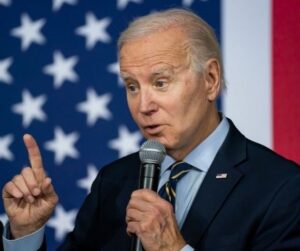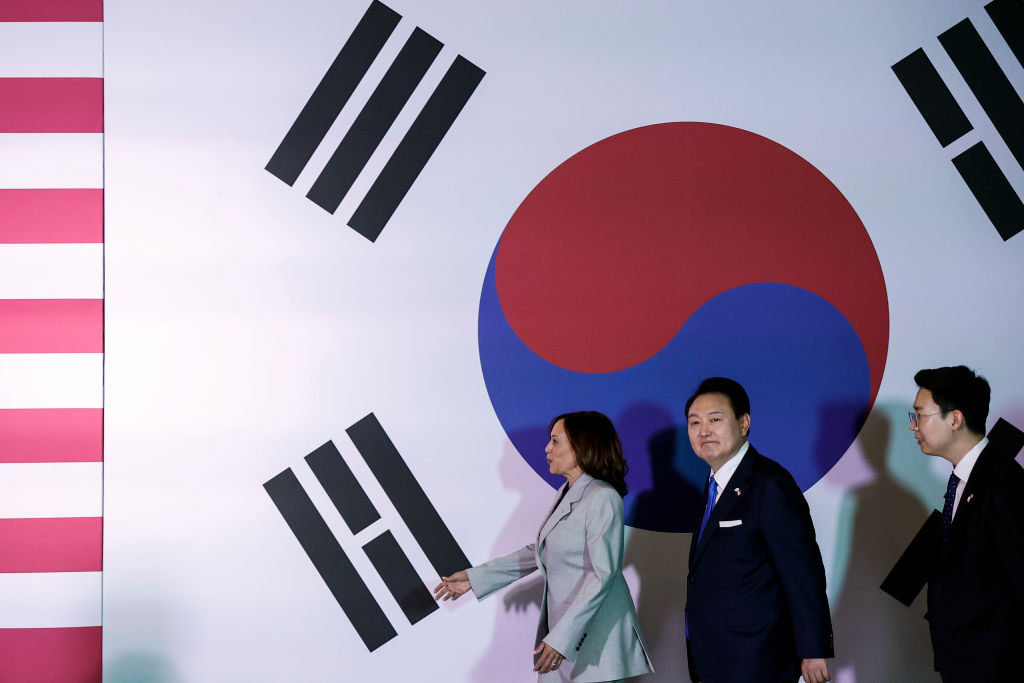President Joe Biden will host South Korean President Yoon Suk Yeol on April 26. Replete with meetings and dinner extravaganza, the encounter with the leader of the Republic of Korea (ROK) will be the second state visit of Biden’s presidency. Discussion will focus on North Korea’s aggressive missile and underwater drone testing and the threat of the Democratic People’s Republic of Korea (DPRK) restarting nuclear testing. Another pesky subject is the recent leak of classified documents that mention South Korea and Ukraine.
According to a Liberty Nation report, South Korea was reluctant to sell 155 mm artillery shells to the United States to backfill inventories sent to Ukraine. It is not that the ROK doesn’t support Ukraine in its struggle against Russia: It is the country’s official policy to not supply weapons to countries at war, and it fears the artillery would be diverted to Ukraine once in US possession. Compounding the distressing content of the leaked documents was evidence of US intelligence agencies spying on South Korea.
US Spying on South Korea
The unauthorized release of classified charts exposing Seoul’s internal policy positions and the exposure of the fact that the United States was gathering intelligence on the ROK have put President Yoon in a difficult situation with his opposition party. Writing for The New York Times, Choe Sang-Hun explained:
“A group of opposition lawmakers held a news conference in South Korea … denouncing the United States for spying. They said the revelations included in the leaked documents may be ‘just the tip of the iceberg,’ and strongly urged Washington to launch an investigation and ensure that similar acts did not happen again. The documents pertaining to South Korea showed a key American ally torn between Washington’s pressure on Seoul to help supply ammunition to Ukraine and its official policy of not providing lethal weapons to countries at war.”
Press reports suggest the ROK may be softening on not providing lethal aid to warring nations. President Yoon recently stated he was rethinking the policy. “If there is a situation the international community cannot condone, such as any large-scale attack on civilians, massacre, or serious violation of the laws of war, it might be difficult for us to insist only on humanitarian or financial support,” Yoon told Reuters. That would make conversations with President Biden easier. Additionally, providing weapons directly to Ukraine would solidify South Korea’s geopolitical position in the Indo-Pacific region and globally.
The timing of the state visit is advantageous. The 22nd Korea-US Integrated Defense Dialogue held on April 11-12 in Washington raised issues primed for executive-level talks. The Integrated Defense Dialogue meetings between US Assistant Secretary of Defense for Indo-Pacific Security Affairs Ely Ratner and ROK Deputy Minister for National Defense Policy Heo Tae-keun focused on North Korea’s dangerous weapons testing.
South Korea Important in the Indo-Pacific Region

Joe Biden (Photo by Nathan Howard/Getty Images)
To that end, both representatives “recognized the importance of combined readiness training and the Alliance’s missile defense architecture for defending the ROK people as well as US and ROK deployed forces,” a Department of Defense readout on the meeting reported. In addition, during the executive session, they “reinforced the importance of preserving peace and stability in the Taiwan Strait.” There is little doubt White House talking points will emphasize South Korea’s critical role in offsetting China’s growing aggressive behavior in the Far East. The ROK is pivotal in restraining Beijing’s influence in the Sea of Japan and blunting North Korea’s designs on invading the South as a coordinated operation with China.
But the support goes both ways. “Biden will announce specific new nuclear deterrence efforts as well as a new cyber security initiative, economic investments and an educational partnership,” the Associated Press reported. “One of the [US] officials said Biden hopes to put a particular emphasis on the United States’ ‘iron clad’ commitment to deterring nuclear action by North Korea as Pyongyang has stepped up ballistic missile tests.” The scope of the “new nuclear deterrence efforts” is unknown. The Biden national security team has escalated its combined exercises with the ROK and others in the region to build a solid and credible bulwark against Chinese and DPRK aggression in the Indo-Pacific. For Biden during the state visit, putting together a coherent message of support for Seoul and mending some fences will be the challenge.




